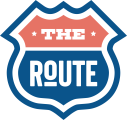
Scott Horsley
Scott Horsley is NPR's Chief Economics Correspondent. He reports on ups and downs in the national economy as well as fault lines between booming and busting communities.
Horsley spent a decade on the White House beat, covering both the Trump and Obama administrations. Before that, he was a San Diego-based business reporter for NPR, covering fast food, gasoline prices, and the California electricity crunch of 2000. He also reported from the Pentagon during the early phases of the wars in Iraq and Afghanistan.
Before joining NPR in 2001, Horsley worked for NPR Member stations in San Diego and Tampa, as well as commercial radio stations in Boston and Concord, New Hampshire. Horsley began his professional career as a production assistant for NPR's Morning Edition.
Horsley earned a bachelor's degree from Harvard University and an MBA from San Diego State University. He lives in Washington, D.C.
-
The Biden administration wants banks to report more information on people's accounts so it has a better idea of whom to audit.
-
Senate Republicans once again blocked an effort to increase the government's borrowing authority, raising the risk of an unprecedented federal default in less than three weeks.
-
Treasury Secretary Janet Yellen warned lawmakers the government could run out of money by Oct. 18 unless Congress raises the debt ceiling.
-
The Federal Reserve is reviewing its ethics policies following criticism that two regional bank presidents actively traded stocks and real estate assets during the pandemic.
-
The Federal Reserve is projecting higher inflation this year than it had previously forecast, but says prices will cool more next year.
-
The Federal Reserve ends a policy meeting Wednesday. No changes are expected in interest rates, but investors will be watching for hints as to when the central bank may lessen support for the economy.
-
U.S. manufacturers are still struggling to keep pace with booming demand. The culprit? Sometimes, it's a single missing part.
-
Prices have been climbing at the fastest pace in over a decade, as Americans pay more for gas, groceries and other items. The Labor Department issues its latest data for the month of August.
-
A larger White House campaign is targeting what it calls anti-competitive behavior in several industries, including meatpacking, in which over 80% of beef goes through just four companies.
-
Hiring slowed in August as a surge in new coronavirus infections weighed on the economic recovery. Employers added just 235,000 jobs last month, a sharp drop from June and July.







